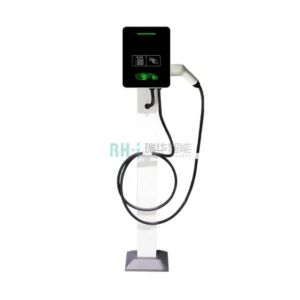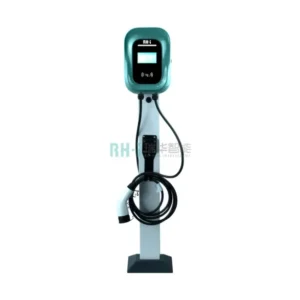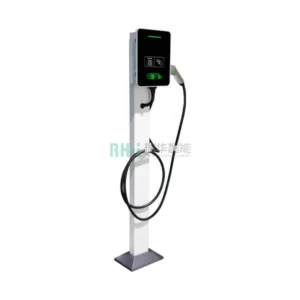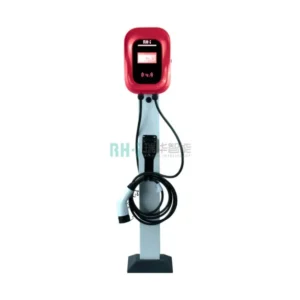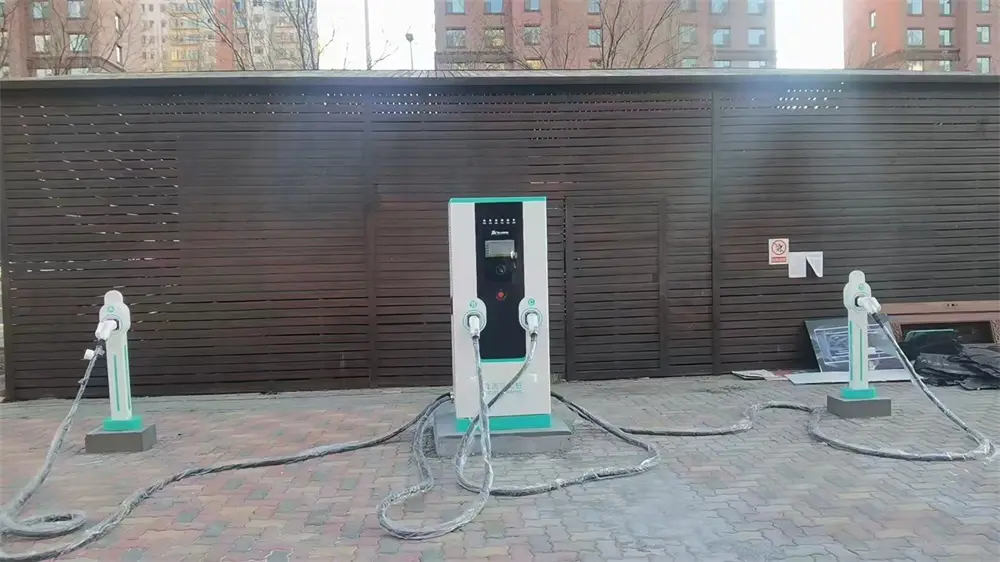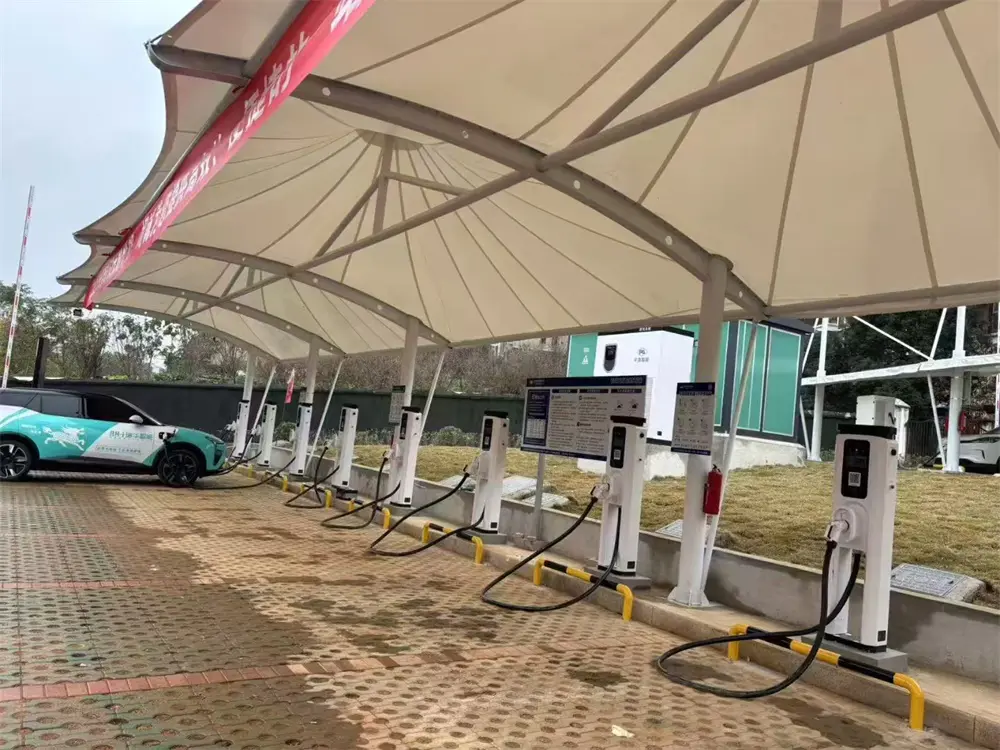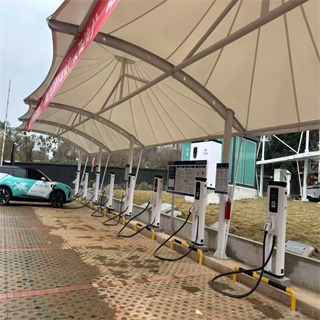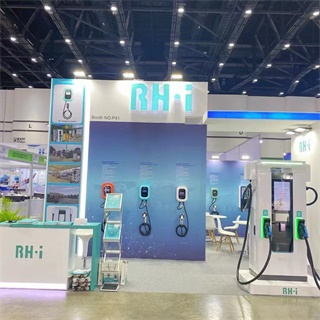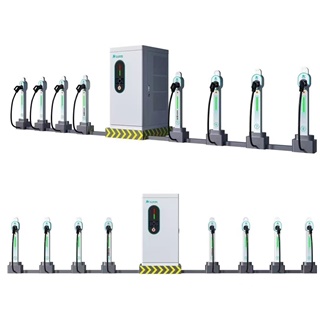Best EV Home Charger in 2025
This article was updated in January 2025 and will be periodically revised based on testing of new equipment.
Understanding how to charge vehicles has become a critical task for fleet managers and business owners. Electric vehicles (EVs) differ significantly from traditional internal combustion engine vehicles, with the choice of charging method being a top priority to address.
For business users, installing home EV chargers offers significant advantages: vehicles can charge while parked, greatly improving operational efficiency. Moreover, the cost of home or private charging infrastructure is roughly one-third that of public DC fast charging. Typically, the initial investment for an EV charger ranges from $400 to $500, making it a cost-effective long-term solution.
Hot Products
7kw Home Charger, Single Phase EV Charger
Protection level: IP54
Number of guns: single gun design
Charging interface: CCS2, CHAdeMO, GB/T, etc.
11kW EV Charger, Home AC Car Charger
Protection level: IP54
Number of guns: single/dual gun design
Charging interface: CCS2, CHAdeMO, GB/T, etc.
19.2 KW EV Charger, AC Home Charger
Protection level: IP54
Number of guns: single gun design
Charging interface: CCS2, CHAdeMO, GB/T, etc.
Home 22kw EV Charger, AC Charging
Protection level: IP54
Number of guns: single gun design
Charging interface: CCS2, CHAdeMO, GB/T, etc.
2025 top 5 best eV charger for home
Home EV chargers play a vital role in ensuring efficient and reliable charging of electric vehicles.
Advanced chargers, Ruihua’s home EV chargers, are designed with high-quality components, including high-efficiency charging chips, high-durability power supplies and circuits, safety protection modules (e.g., overheat, overload, and short-circuit protection), and intelligent management systems to support remote monitoring and scheduling.
With cutting-edge technology, the chargers provide stable power output and are durable, with a lifespan typically exceeding 10 years. Suitable for garages, private driveways and residential spaces, these chargers combine safety, convenience and performance to ensure that your electric vehicle is always ready to go.
16 AMP 3.5 KW EV Charger for Home
Pro
- Nuanced cost tracking
- Remote monitoring and control
- Smart functions integrated into same RUIHUA app used for public charging
Cons
- Lower output settings require hardwire installation
- Lesser outdoor rating than some of the others
RUIHUA is one of China’s leading home EV charger solution providers, with products widely sold in multiple countries around the world and serving thousands of overseas customers. RUIHUA’s Home Charging Stations can be integrated into a unified platform, connecting seamlessly with the company’s public charging station management system for centralized control. Enterprise users can manage multiple charging stations through the platform and customize charging targets for each electric vehicle, including the desired charge percentage and the additional EPA mileage.
The platform offers a user-friendly interface, featuring detailed data such as charging rate charts, total charging time, and energy output per session, which helps businesses analyze charging efficiency. Additionally, the platform allows users to schedule charging times to take advantage of lower electricity costs during off-peak hours (many electric vehicles also support this function in their settings), further reducing operational expenses.
RUIHUA’s charging management platform provides precise cost tracking, enabling businesses to select from various rate plans offered by local utility providers. Even with fluctuating rates, the platform ensures accurate calculation of the actual charging cost, helping businesses optimize electricity consumption.
We also highly appreciate the design details, such as the built-in cable management groove on top of the charging station, which makes cable organization easy. The charging plug can be securely locked into the center base, eliminating the need for additional cable management devices that many other systems require, offering simpler operation and increased efficiency.
30 AMP 7KW Best EV Home Charger
Pro
- Comparatively high output
- Attractive price point
Cons
- Can’t enter specific vehicles
RUIHUA’s 7kW charging solution offers a range of power monitoring equipment, from standard smart outlets to systems that track each circuit in fuse panels. The entire power tracking system is fully integrated into the app, allowing businesses to link their electric vehicles to the app via API for seamless monitoring. However, for enterprises that only use EV charging equipment, the unused features in the app may make it feel overly complex.
In addition, this impressive entry-level product comes with Wi-Fi connectivity and is priced several hundred dollars lower than the 19.2kW model. The 7kW output capacity is considered one of the higher-end options in the product line. Aside from a few advanced features, such as using specific vehicles to estimate driving range or battery percentage, this charger includes virtually everything needed, including detailed electricity rates based on your actual utility plan, ensuring cost transparency and efficient management for businesses.
50 AMP 11kw Home Charger for EV
Pro
- Single Gun / Dual Gun Configuration
- Integration with Tesla App
- GB/T and IEC 62196 Type 2/CCS2 standards
Cons
- Lacks some of the data (such as cost tracking) provided by other EV charger
The RUIHUA 50 AMP 11kW Home Charger is one of RUIHUA’s latest home charging solutions, designed with businesses and fleet operations in mind. It comes with an integrated adapter that seamlessly switches between J1772 and NACS plug types, ensuring compatibility with a wide range of electric vehicles. Compared to standard wall-mounted connectors with a Tesla plug, this charger is slightly thicker, but this is due to the built-in adapter, which is electronically locked to prevent it from being lost.
The charger delivers a peak output of 11.5 kW, the same as standard wall connectors, and is available only in a hardwired configuration. It also supports sharing power with other wall connectors, making it ideal for businesses with multiple charging points.
Fully integrated with the Tesla mobile app, this charger allows businesses to monitor energy usage, making it an essential tool for fleet management and charging efficiency tracking. After installation, the device must be configured through a separate Tesla One app, which allows users to set the maximum output for the connected circuit. DIY enthusiasts can easily create an account to manage settings. Users can also enable charging for specific Tesla vehicles while preventing others from charging, though this feature is only available for Tesla cars.
The Wall Connector’s 24-foot cable is impressively thin, offering the same power output as thicker cables. This design makes the cable easier to handle and leaves a smaller gap when charging in the driveway with the garage door closed.
In terms of pricing, the universal adapter is slightly more expensive than the standard wall connector, but it provides an excellent solution for homes with multiple EVs or businesses looking to future-proof their charging infrastructure.
80 AMP 19.2 kw Home Charger for EV
Pro
- High Power Output
- Compatibility with Multiple EVs
- Smart Features
Cons
- Complex Installation.
- Higher Initial Cos.
The RUIHUA 19.2 kW home EV charger provides customers with a cost-effective solution that is compatible with any EV charging application supporting OCPP (Open Charge Point Protocol) 1.6. This makes it an ideal choice for businesses looking to establish a unified charging infrastructure.
The charger features a robust aluminum casing, ensuring long-term, stable operation even in demanding environments. It is equipped with the thickest cables, offering high durability and minimizing the risk of damage, ensuring a stable charging process. Additionally, the unit comes with a wall-mounted cable holder, enabling businesses to manage cables more efficiently and avoid cluttered setups.
Like other devices, this charger offers multiple adjustable output levels, allowing businesses to select according to their specific needs and meet various charging requirements. Whether for commercial fleets or large residential installations, the RUIHUA 19.2 kW charger is compatible with a wide range of energy management systems, helping businesses optimize energy consumption and operational costs.
This charger is not only reliable and durable but also features intelligent monitoring capabilities, enhancing charging efficiency and reducing operational costs, making it an ideal solution for energy-efficient commercial applications.
100 AMP 22 kW Home Charger for EV
Pro
- Remote monitoring and control
- Different output versions offered
Cons
- Higher-end pricing
- Clunky app
- No electricity cost tracking
The RUIHUA 22 kW Home EV Charger is a high-performance charging solution designed specifically for business users, offering higher charging power and faster charging speeds, making it compatible with most electric vehicles. While it is priced slightly higher than other models, its powerful performance and reliable construction make it an ideal choice for a variety of commercial and residential charging needs.
With a maximum rated current of 32 A, this charger offers significantly faster charging speeds compared to typical Level 1 chargers, making it ideal for businesses or households that require rapid charging. It efficiently and consistently provides the necessary power to electric vehicles, reducing charging time and improving operational efficiency.
The RUIHUA 22 kW charger features a durable design, with a robust housing that can withstand long-term, high-intensity use, making it suitable for continuous charging demands in a business environment, although its appearance may not be as sleek as some other models.
This charger is available with EC 62196 Type 2 and GB/T 20234 plugs, which are compatible with most electric vehicle brands. For businesses that require compatibility with Tesla or other vehicles with a J1772 to NACS port, an adapter can be purchased separately to extend compatibility.
Equipped with a 25-foot long, flexible power cable, this charger boasts one of the longest charging cables available on the market. Even in larger spaces, it provides a flexible charging solution, and the cable design allows users to easily store it and avoid tangled cords.
The charger is rated with an IP67 protection level, meaning it is fully resistant to dust, dirt, moisture, and even harsh weather conditions like heavy rain or snow, ensuring its stability in outdoor environments. The rubber plug cover and short cord design further enhance its protective capabilities, ensuring long-term reliability of the internal components.
The RUIHUA 22 kW charger is UL certified, meeting national safety standards and compliance requirements, giving business users peace of mind knowing the charging equipment adheres to all safety regulations and minimizing potential safety risks.
This charger comes with a three-year warranty, allowing users to confidently use the device and ensure its long-term stable operation. For those who need a longer warranty, a five-year warranty is available for an additional $100.
Best Home EV Chargers Factory, Manufacturer, Supplier In China
JiangXi RuiHua Intelligent Technology Co., Ltd was founded in July 2018 and invested by Shenzhen Dongshunqian Technology Co. The company successfully obtained the certificate of National High-Tech Enterprise in 2019 and was selected into the list of “Specialized, Specialized, Specialized and New” enterprises in 2021.

The company specializes in the research and development and manufacturing of new energy electric vehicle charging equipment, EV chargers, EV charging cabinets, power supplies, and is committed to providing one-stop EV charging solutions for global customers. Headquartered in Shenzhen, we have a R&D center and provide OEM/ODM customized design services.
Adhering to the principle of “Quality First” and strict management protocols, the company passed the ISO9001 quality management system in 2018. We follow the ISO9001 standard.
How We Tested EV Chargers
Here’s how we evaluate a charger’s power, efficiency, safety, and compatibility through a series of tests to ensure the product’s reliability in long-term commercial use.
The first step is to evaluate whether the existing electrical service can support the chosen charger. For example, we installed a 240-volt outlet in our garage and avoided the additional high cost by adding a 40-amp circuit (instead of a 50-amp configuration). In a corporate environment, these types of installations can help deploy charging facilities quickly while being cost-effective.
For seamless switching between devices, we chose to equip each charging device with a type 2 plug version. This configuration allowed us to easily test different charger models while providing a high degree of flexibility. For example, Tesla does not offer a wall connector with a plug, so we plugged in the Tesla itself to ensure comparable testing.
For our charging performance test, we started by charging a long-lived Tesla Model 3 multiple times using different charging devices. By using third-party software, such as TeslaFi, we were able to accurately compare the charger output to the charge received by the Model 3 battery. This method helped us accurately assess the charging efficiency and losses of each charger.
We not only tested the Tesla Model 3, but also verified the compatibility and efficiency of the charger by using a variety of electric vehicles such as the Rivian R1T, BMW i4 and Hyundai Ioniq 5. Even though the length and thickness of the wires varied, we found no significant difference in charging efficiency (charging losses ranged from about 5% to 8%). This result shows that the charger adapts very well between different car models and performs consistently.
We verified the actual power output of the charger using the built-in meter to ensure that the power and efficiency of the device matched the nominal values. This is especially important for commercial users, as optimizing charging efficiency and reducing power loss can significantly reduce operating costs.
In addition to charging performance, we also test the charger’s safety, including electrical protection, overload protection, thermal protection, and protection ratings such as IP67. These tests ensure that the charger will operate stably and safely for a long period of time in a variety of operating environments.
Things to Consider
Household Circuit Output
Your home’s electrical circuit is rated for a certain amount of maximum amperage. Since EV charging can demand anywhere from 24 to 80 amps, it’s important to see what additional capacity your home has above your current electrical needs, such as furnace, air conditioning, oven, clothes dryer, etc.
Check the main fuse in your breaker box to see the amperage rating—that’s the maximum your home can handle before blowing that main breaker. If you have 150- or 200-amp service or higher, you may have enough wiggle room to add charging without an upgrade. But you’ll need to measure your house’s peak electrical use and consult an electrician.
We recommend using a modest 40- or 50-amp circuit due to its ability to charge most EVs overnight while keeping costs down. You will need a certified electrician to verify your home’s circuit capacity and install any equipment or upgrades necessary.
Some EV charging equipment, provide load management, which means it constantly monitors your house’s overall output and will automatically lower the draw of the charger if necessary to never exceed your house’s capacity.
Wi-Fi Connectivity
If you wish to keep track of your EV’s electrical use and cost, you’ll want a home-charging unit with Wi-Fi connectivity. This allows you to monitor charging, receive alerts, and control the unit via an app.
Variants
Most of these EV chargers offer different variants to suit your needs. These variants (hard-wired or plug, different output capabilities, and varying cord lengths) are typically offered at slightly different prices. Make sure you look at all the various options from any manufacturer.
Charge Rate
The charge rate is expressed in kilowatts of power—volts times amps equals watts, 1000 watts equals a kilowatt—which can be used to estimate charge time. If you’re charging at 6 kilowatts and your EV has a 60.0-kWh battery, the charge time from empty to full will be roughly 10 hours. (It will actually be slightly longer due to losses during charging and slowing down of the charge rate as the battery nears 100 percent.) The charge rate is affected by three factors and will be limited to the lowest of these: the output of the household circuit, the charging equipment, and the vehicle’s onboard charger.
Outdoor Rating
If you’d like your EV charger to be mounted outside, it’s perfectly doable. Each charging unit we tested has an outdoor-grade rating according to either the National Electrical Manufacturers Association (NEMA) or Ingress Protection (IP) standards.
Connector Types:
For more information about the different types of connectors for charging stations, you can refer to our detailed article “Different EV Charging Plug Types: A Complete Guide“. The article explores the various types of connectors in depth and helps you better understand the options that suit your needs.
Cost to Install an EV Charger at Home:
If you are considering installing an EV Charger for your home, it is important to understand the costs and installation details. Please read our detailed article “How much to install EV Charger at home? ” which provides detailed information on the cost of charger equipment and installation costs.
Tax Breaks for EV Charging Expenses:
If you’re considering paying for electric vehicle charging, it’s worth looking into the tax incentives available. Our article, Tax Breaks for EV Charging Expenses, details how to use tax incentives to reduce charging costs.”
FAQ
Ruihua EV Charger Factory View
Ruihua Factory currently has more than 400 employees, with an area of more than 80,000 square meters. Introduce the global advanced manufacturing equipment and set up multiple large -scale production lines, with an annual output value of 300 million RMB dollars.
Certification Show
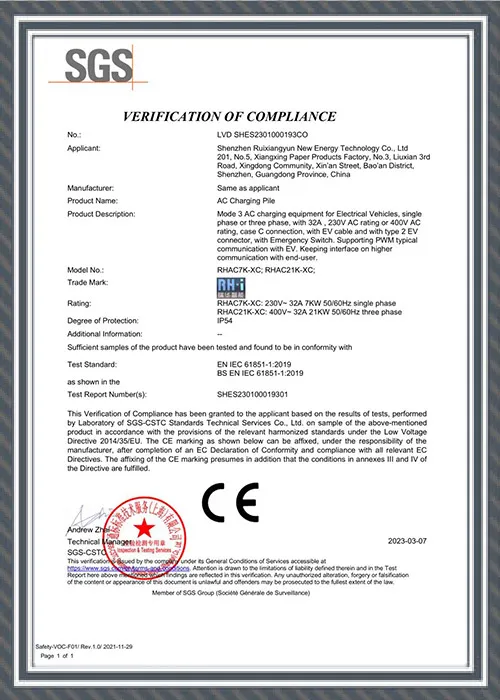
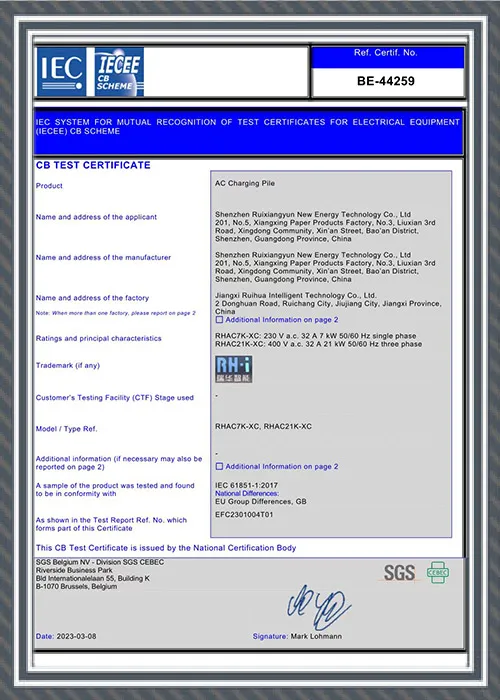

Research & Development
RuiHua is committed to innovation and quality through advanced research and development capabilities. Our state-of-the-art laboratories and equipment ensure every product meets global standards and delivers exceptional performance. Highlights of our R&D capabilities include:
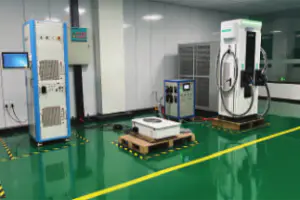
EU/US standard product testing

GB/T testing

Oscilloscape

High/Low temperature testing chamber

Laboratory(Outside)
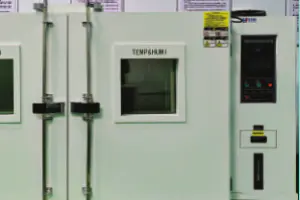
AC charging lab

High/Low temperature testing chamber

Humidity testing chamber

Vibration tester

Insulation resistance meter

Infrared thermometer

Multimeter

